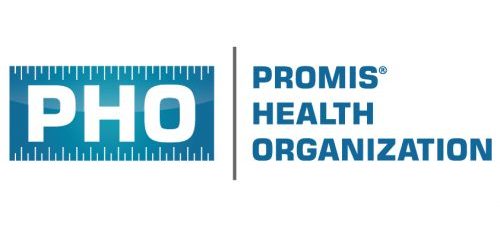What is PROMIS?
 PROMIS® (Patient-Reported Outcomes Measurement Information System®) is a set of person-centered measures that evaluates and monitors physical, mental, and social health in adults and children. It was established in 2004 with funding from the National Institutes of Health (NIH) as one of the initiatives of the NIH Roadmap for Medical Research. The purpose was to identify major opportunities for medical research and the development of new scientific expertise and technology that would leadd to tangible benefits for patients.
PROMIS® (Patient-Reported Outcomes Measurement Information System®) is a set of person-centered measures that evaluates and monitors physical, mental, and social health in adults and children. It was established in 2004 with funding from the National Institutes of Health (NIH) as one of the initiatives of the NIH Roadmap for Medical Research. The purpose was to identify major opportunities for medical research and the development of new scientific expertise and technology that would leadd to tangible benefits for patients.
PROMIS measures are generic, rather than disease-specific, and can be used with the general population and with individuals living with chronic conditions.
PROMIS has been translated into Spanish and other languages and is used in many parts of the world. Click for information on PROMIS in languages other than English
Why Use PROMIS?

PROMIS measures have greater precision than most conventional measures. Greater precision (less error) enhances power in a less costly way that increasing sample size.
PROMIS is designed to enhance communication between clinicians and patients in diverse research and clinical settings.
"PROMIS is a game-changer in PRO measurement. It fits the needs of robust and valid PRO measures for specific purposes and allows for the comparability of results in different patient groups and populations."
Jordi Alonso, MD, PhD
“One of the potential clinical applications of PROMIS measures is in improving our understanding of the patient experience of a given disease or condition to identify those who might benefit from intervention.”
Dave Cella, PhD
“Using PROMIS we can obtain a validated assessment of how the patient is feeling and functioning and track these values over time. This will not only help the patient sitting in front of us, but patients that will follow.”
Judy Baumhauer, MD, MPH
PROMIS measures have been developed and validated with state-of-the-science methods to be psychometrically sound and to transform how life domains are measured. They have greater precision than most conventional measures. Greater precision (less error) enhances power in a less costly way than increasing sample size.
PROMIS is designed to be patient-friendly and enhance communication between clinicians and patients. PROMIS measures are relevant across all conditions to assess clinical symptoms, functioning, and quality of life. This information facilitates more informed discussions, shared decision-making, and personalized treatment plans. With a larger range of measurement than most conventional measures, use of PROMIS decreases floor and ceiling effects as a result.
PROMIS measures are available in multiple formats and easily integrated into diverse data collection tools. PROMIS uses fewer items than conventional measures, thereby decreasing respondent burden. When used as computer-adaptive tests, PROMIS measures usually require 4-6 items for precise measurement of health-related constructs.
PROMIS measures are developed using rigorous methodology and are being used to expand into new areas of self-reported health. The validity of PROMIS continues to be supported in the qualitative and quantitative evidence being published in the scientific literature. There has been a rapid uptake in research with now more than 3,500 publications on PROMIS measures.
Visit HealthMeasures.net for information and resources on PROMIS.

